The Services We Use
![]() Dan Brown posted on the 15th of October 2021
Dan Brown posted on the 15th of October 2021
Now that I’ve got a bit more time to work on BookStack, I thought it’d be good to do something a little different on the blog and pay tribute to the services we use to help manage the project. Keep in mind that this is not a complete listing of projects that we use within BookStack itself, but instead a listing of the services and projects that we use from a project & code management point of view.
GitHub

GitHub provides a lot of the core central management of the project. We use GitHub for the following:
- Central location for code management.
- Issue and feature request tracking.
- Release planning and management.
- Code contribution management via Pull Requests.
- Automated running of our test suite.
- Sponsorship management.
Originally I hosted the project on GitLab but, after deciding that I’d want to push the project further into the open, I decided to move it to GitHub for better visibility. Although not open itself, GitHub has provided good facilitation of the project’s needs and our value from GitHub has grown as they’ve increased their feature-set with new offerings such as GitHub Actions and GitHub Sponsors.
Plausible
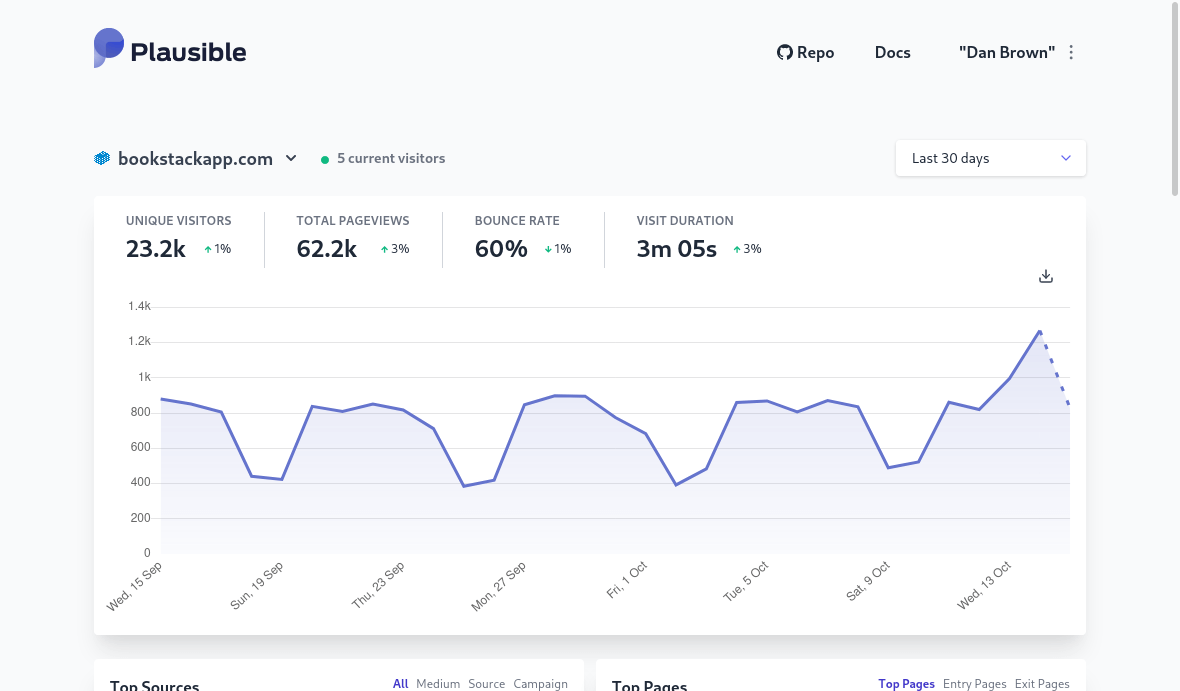
Plausible provides our website analytics as a privacy friendly alternative to the Google Analytics tracking we used to use. I detailed our migration in a blogpost earlier this year.
The information it provides is concise and exactly what I may need to know about our website’s usage. Plausible is a great open-source offering, with a focused goal which it meets superbly. We self-host an instance and then contribute back via GitHub sponsors.
CrowdIn

CrowdIn provides translation management services for BookStack. Previous to using CrowdIn translations would be managed via GitHub pull requests which could pose a significant barrier to non-developer translators while being tricky for me to manage.
Using CrowdIn’s free-for-open-source offerings provided a central location to track translations while massively improving accessability for translators. CrowdIn the integrates neatly back to GitHub to send back all translation changes via a single pull request making my maintainer role easier. Overall it’s very valuable and I’m grateful to CrowdIn for their free offering.
StyleCI
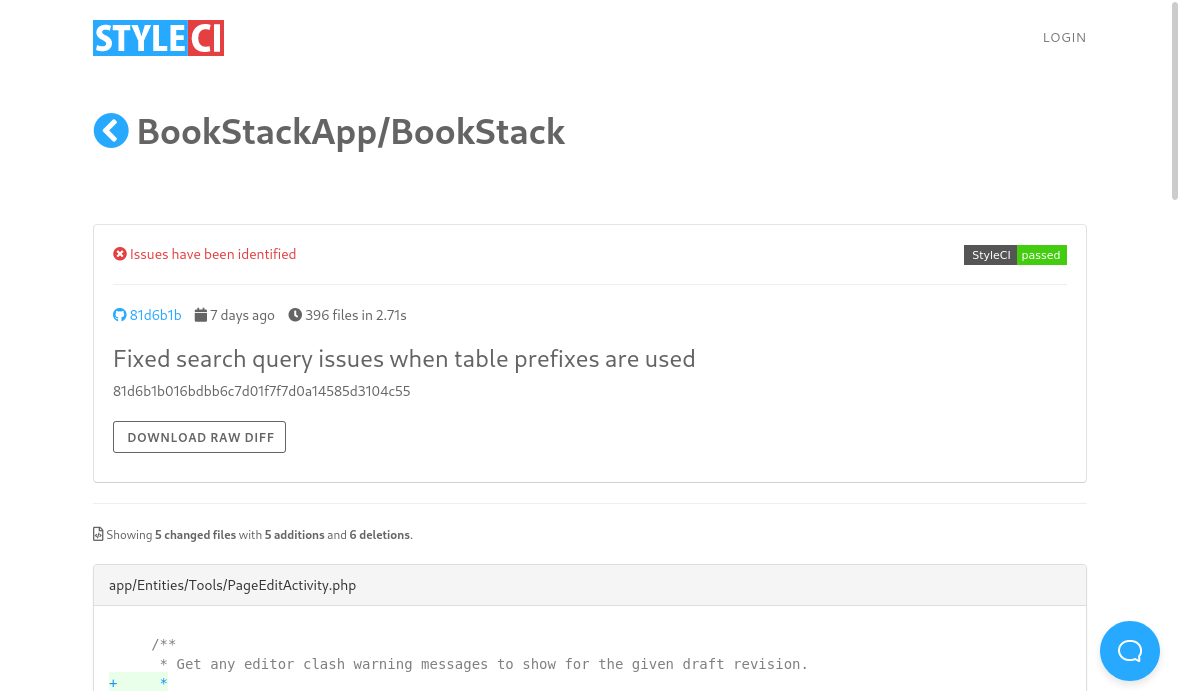
It’s good to have consistent code styling within a project to ease the cognitive load. I did use PHP CodeSniffer to impose a standard but I’d often forget to run it or be hesitant of causing a lot of changes which would then complicate pending pull requests.
Instead I turned to StyleCI, an offering from the great open source wizard Graham Campbell. StyleCI will automatically assess code style upon push to GitHub, with blazing speed, and report back if there any issues. You can then pull the fixes to be made via automated or manual means to get the code back into shape.
While StyleCI does cost, Open source projects can use it for free. It’s a classic example of a focused service that just does exactly what you need it to, making your life easier in the process.
Code Climate
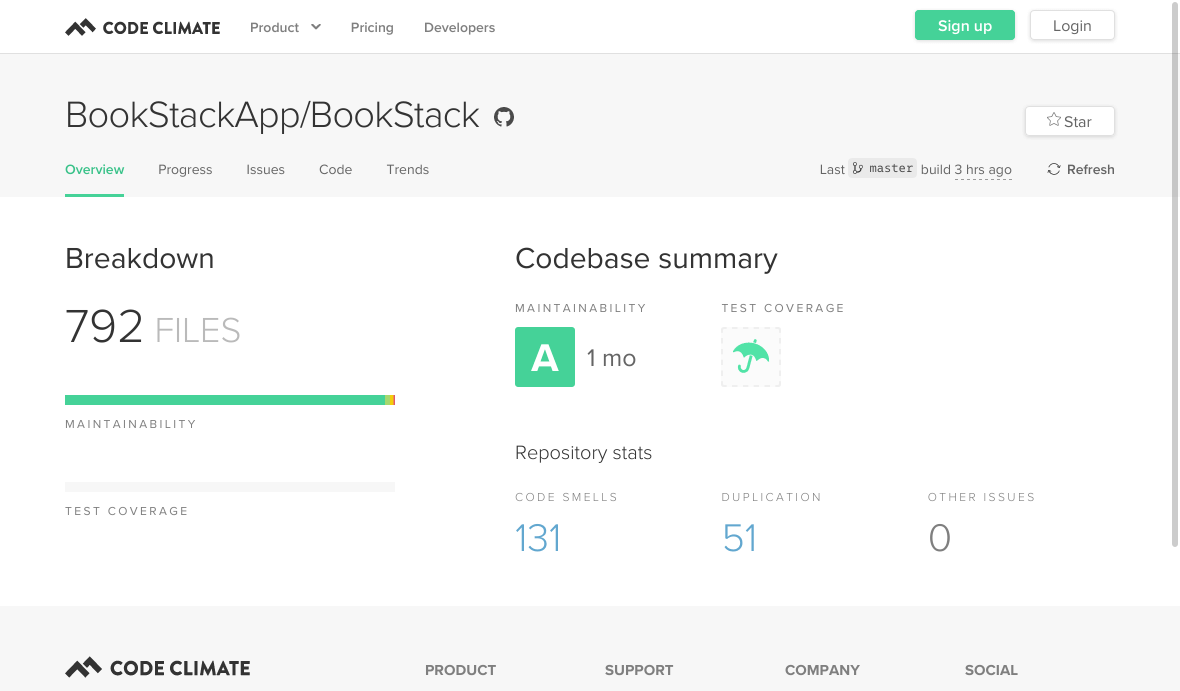
Code Climate is something I added to the project out of curiosity a few years ago and have since left active after getting a surprising amount of value back. Code Climate provides code quality analysis, highlighting potential maintainability issues in code. I don’t follow its guidance religiously but it’s proved useful to get a feel when particular files might be getting out of control.
CodeClimate is not open source but it does provide free services to Open Source projects. It’s another service that was super simple, taking only minutes to set-up, while providing a net benefit.
Hugo

Not so much a service as an open source project, but Hugo plays a big part for our website and this blog. Hugo is a static-site generator that allows us to generate a performant, easy-to-host, static HTML site for our docs, blog and homepage from content we can manage via GitHub.
Hugo has remained great for our usage and has remained super fast even as the site and blog have grown. I’ve sometimes had trouble wrangling with the template & variable syntax but I can usually find a solution and it’s infrequent I need to make changes. Overall, A great open-source project.
Mailbag
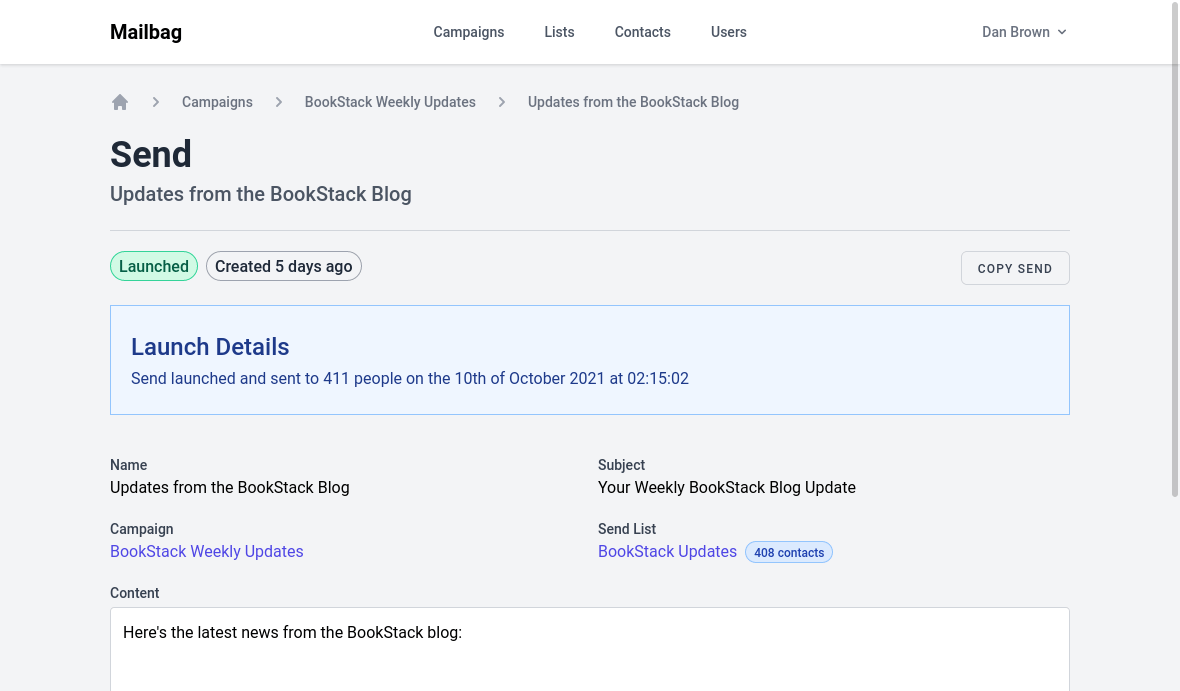
Mailbag is a project I created myself to manage our mailing lists as an alternative to our previous Mailchimp usage. I detailed our migration in a blogpost earlier this year.
It’s quite a simple system, focusing on plaintext email content, but it’s designed to privacy respecting and fast to use. I provide it under the MIT license via GitHub.
Discord

Although primarily intended for gaming, Discord has been adopted as the discussion system of choice by many open source projects. Personally I was very hesitant about utilizing it for BookStack but Discord has acted as a very good host, providing any required features while doing so with a great user experience. Discord has proved itself as a great alternative to our GitHub issue list as a place to informally discuss the project and to seek/provide support.
OVH

I’ve used many hosting providers over the years but I’ve landed on using OVH for most of my personal projects thanks to their relatively cheap price-point for VPS systems in Europe. Their reliability may not be at Google Cloud or AWS levels, with a few recent events occuring including data centre fires and network configuration issues, but I’m happy to sacrifice a little reliability for a better price and predictable pricing. We use OVH’s VPS offerings to host this website & blog.
Algolia DocSearch
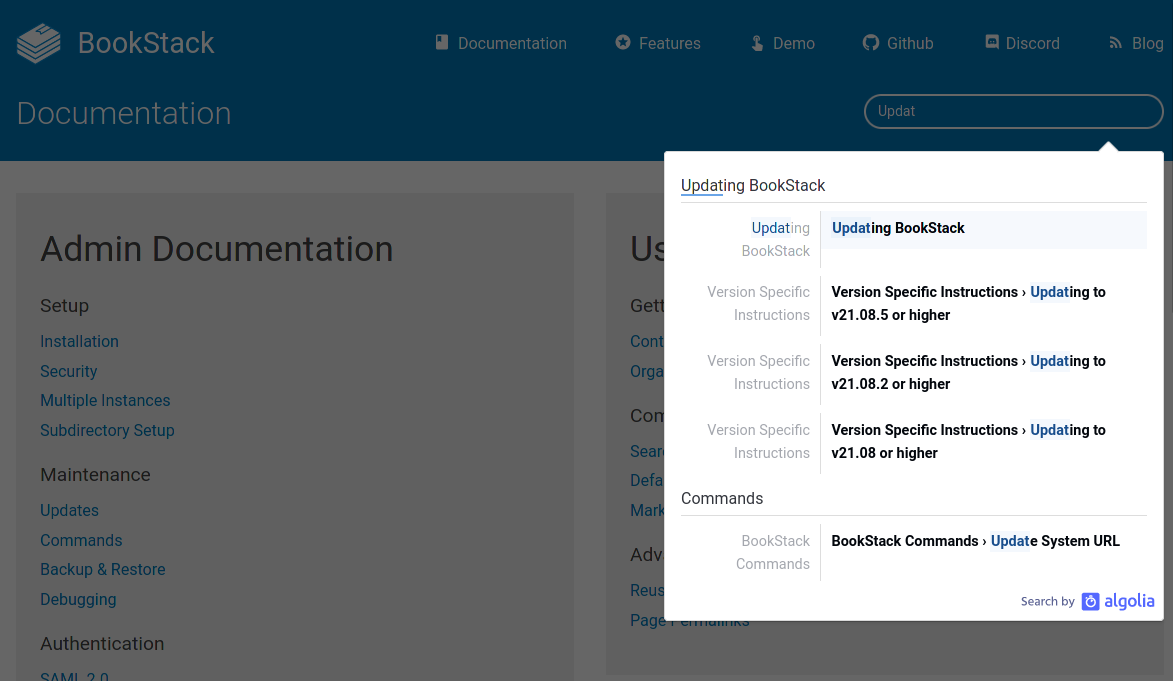
The BookStack documentation pages are generated as part of the website static-site build. While there are options for search in this scenario, using DocSearch by Algolia has made things very easy which providing a great search experience within our documentation. DocSearch is offered free by Aloglia for open source projects.
Header Image Credits: Photo by Hendrik Cornelissen on Unsplash